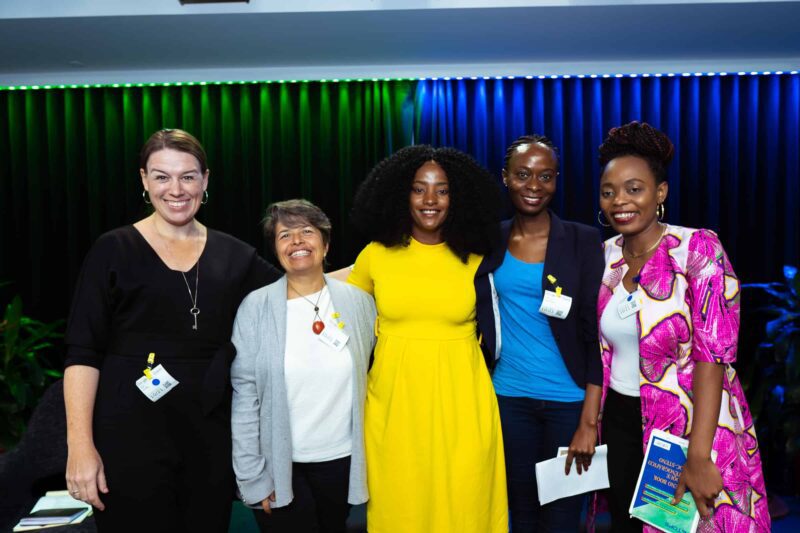Internews’ partners work in countries around the world in which state and non-state actors are employing new technologies to surveil, censor, and suppress free speech and access to information online. On October 24, partners of the Global Technology Program came together in Washington, D.C. to discuss how these challenges are taking shape in their local communities and the initiatives they are leading to fight back.
The event, hosted at Google, began with a discussion on the spread of digital authoritarianism across sub-Saharan Africa and Latin America and the responsibilities of governments and platforms in the global north. Panelists included: Gbenga Sesan, Executive Director of Paradigm Initiative; Maria Paz Canales, Executive Director of Derechos Digitales, Mishi Choudhary, technology lawyer and former Legal Director of the Software Freedom Law Center, and Jon Camfield, Internews’ Director of Global Technology Programs.
Watch Panel 1:
During the second panel, partners shared the solutions they are implementing, and reflected on the continued challenges they face and the support they need to strengthen their work. The panel brought together: Carolina Botero, CEO of Karisma Foundation; Emilia Epeti Miki, Founder and CEO of the Denis Miki Foundation and Efeti Ventures; Ashnah Kalemera, Program Officer at the ICT Policy Center for Eastern and Southern Africa; and Babette Ngene, Internews’ Director of Digital Rights Programs.
Watch Panel 2:
Key Takeaways
-
An opportunity to establish global norms and standards: As panelists discussed the history of US leadership in the internet freedom space, several stressed that the rise of digital authoritarianism in the current moment presented a golden opportunity to establish global norms and standards around the use of technology for both countries and platforms. This move away from holding up specific nations as role models will also prevent future backsliding by African or Latin American governments in response to political changes in the global north.
-
From techno-solutionism to funding the necessary: The need to “put your money where your values are” rather than chasing after the newest, “sexy” technology solution was a common theme throughout the discussion. In the words of Gbenga Sesan, “while AI and the fourth industrial revolution are great research topics in our countries, they won’t keep activists out of jail.” At the same time, the industry needs to be more proactive at anticipating trends and adapt its funding models accordingly.
-
Tackle the structural causes of authoritarianism: Much of the conversation on LAC explored how new technologies are implemented with laudable purposes but no attention to how they may be used in environments with an authoritarian history. Partners called for interventions to focus on the structural causes of authoritarianism in these countries, and a greater critical analysis of when and where technological interventions are suitable.
-
Digital rights are inseparable from human rights: Partners stressed that the fight for digital rights is inherently linked to the broader international human rights framework. They called for greater attention to the intersections between digital rights and gender equality, accessibility, and migrant and refugee rights. However, they also observed that activists should also be willing to make the economic argument against digital suppression in order to attract new stakeholders in environments in which governments are not responsive to human rights appeals.
Conclusion: Local Voices are King
The issues our partners raised – censorship and surveillance technology, unregulated biometrics, internet shutdowns and laws stifling free speech – are undeniably global, but have taken on different flavors in each of the regions in which they work. For funders and implementers to monitor these global trends and implement interventions that are effective on the ground, it is crucial to foreground local voices who hold expert knowledge of the promise and peril technology holds for their local realities.
